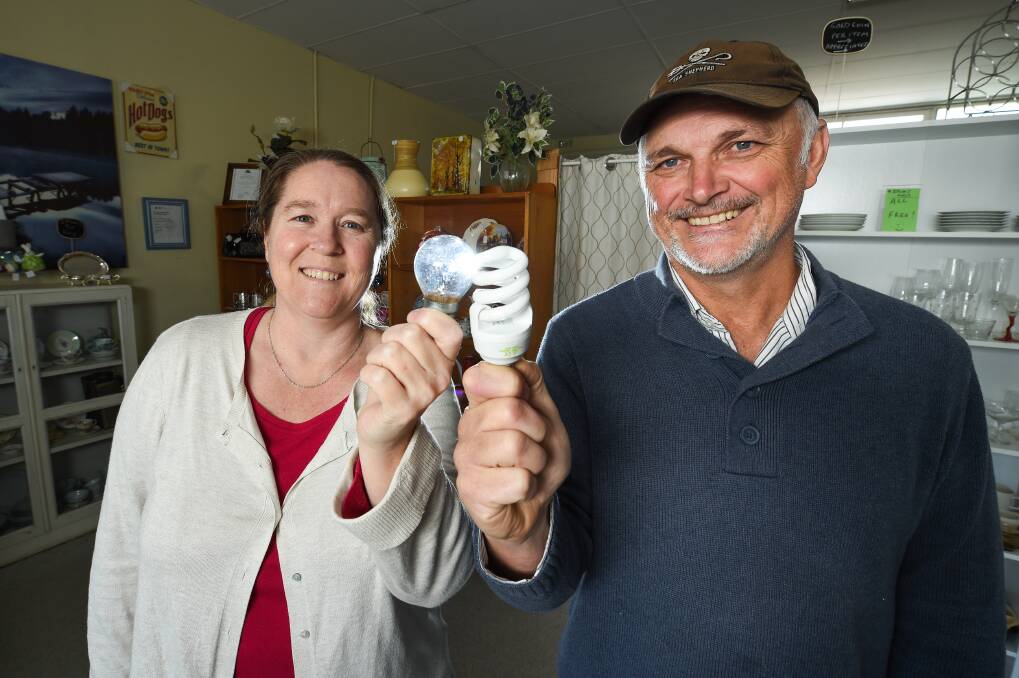
Low-income households consume 31 per cent less electricity than the national average, yet in these homes, energy costs take up 7 per cent of their income compared to the national average of 2 per cent.
Subscribe now for unlimited access.
$0/
(min cost $0)
or signup to continue reading
It’s the case in North Albury, but a project led by two Charles Sturt University researchers is aiming to change this.
Helen Masterman-Smith and John Rafferty have been running the ‘Powering Down’ project since March out of the Global Village Community Co-op on Mate Street, delivering energy advice to low-income earners.
“Often we see a lot of unemployed people who are really quite frustrated,” Dr Rafferty said.
“Many of them are experiencing high levels of thermal discomfort in summer and winter, and are scared to turn on appliances.
“You can’t pick out a household and say it’s their fault, there’s too many people in that situation to do that.
“The majority of people are renting, so it’s difficult to do anything physical, but heavy curtains and rugs are some of the things we’re providing people.”
As part of a partnership with Albury Council and the NSW Environment Trust, $15,000 is available to the first 50 low-income households who sign up.
Dr Masterman-Smith said the money could be used to help bring down bills.
“It could be replacing an inefficient 1970s fridge – one person in the program has got enormous power bills and through giving her some meters we’re starting to think she might have a faulty hot water service,” she said.
“One lady has never used computers and has a visual disability – transport and digital access are huge barriers to getting information and help.
“There are enormous and complex barriers to people being as efficient as possible.”
Dr Masterman-Smith said part of the project was investigating why regional cities like Albury had the highest rates of power disconnection in the state.
“We haven’t confirmed this, but we’re starting to think it could be about the range of suppliers available,” she said.
“Why is it someone who lives in Lavington has so much more difficulty keeping electricity paid than someone who lives in other places of hardship like Western Sydney? Regional NSW is really being hit hard as far as energy stress is concerned and we’re trying to get to the root cause of that.”


